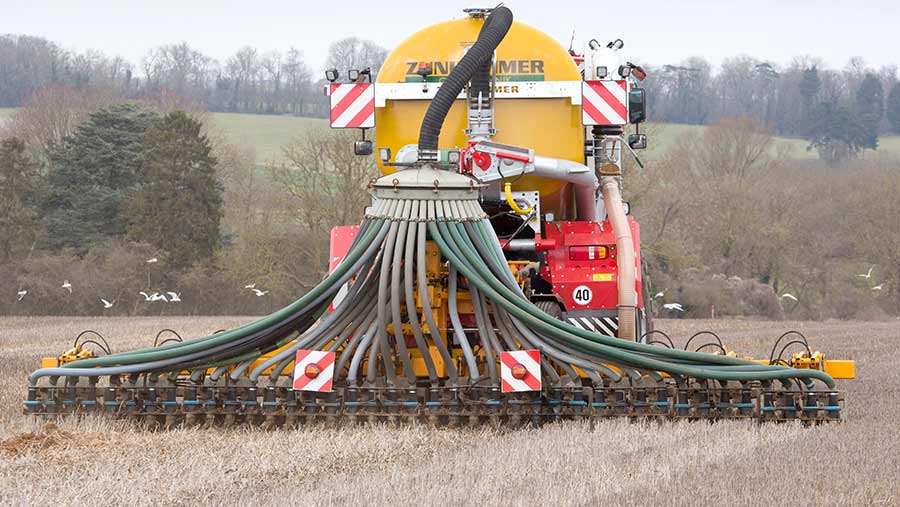Editor’s view: Grab slurry grant funding before its gone
 © Tim Scrivener
© Tim Scrivener The time for putting our house in order over slurry storage is now.
Defra’s Slurry Infrastructure Grant Scheme, opening next week for farmers in England, joins a variety of other measures throughout the UK to help farmers invest in slurry spreading and storage equipment.
Like it or not, agriculture is a contributor to water pollution together with the pollution-spewing water companies, and those with deficient facilities put the reputation of us all at risk.
See also: Editor’s view: Fear, not greed, keeps ministers in post
The figures Defra is quoting state that 50% of nitrate pollution, 25% of phosphorus in the water environment and 75% of sediment pollution comes from agriculture (arising from a variety of sources, of course, not just manure).
This year has been a PR disaster for water companies, with a slew of stories about sewage-clogged rivers giving rise to enormous pressure on them to clean up their act.
One of the most potent things in politics is when a single issue thrusts an unlikely group of voters together, and makes MPs grasp that it is something that can make or break their own reputations.
In this case, it’s middle-class wild swimmers, no-nonsense anglers, hand-wringing environmentalists and any parent who likes their children to splash in the sea without worrying they’ll swallow a turd.
To validate this, just glance at the social media feeds of Jim McMahon (Labour’s shadow environment secretary) – inaction over water quality is the favoured bruise on the Tories’ reputation that he enjoys continually punching.
Water companies
So the water companies currently have the spotlight. Maybe it will be housebuilders next. But it can only be a matter of time until attention swings back to agriculture.
This week, green legal charity ClientEarth and conservation group WWF launched a legal complaint against the Environment Agency (EA) for its “failure to monitor and enforce key environmental laws critical to addressing nitrogen pollution from farms across England”.
It says EA records show almost half of farms inspected in the two years to December 2021 breached pollution regulations and they want the agency to step up inspections and prosecutions for rulebreakers.
Which is why it is so important that farmers take the carrots available before the stick of enforcement is deployed more vigorously.
Funding
Let’s be clear – even with the funding, this still represents a big chunk of capital investment (which all has to be paid up front), so I’m not suggesting this is easy. However, it’s a lot better than it could be.
Water firms are being asked to cough up £56bn in capital investment over 25 years into a long-term programme to tackle storm sewage discharges by 2050 – money that will come from billpayers.
Farmers can’t pass those sorts of costs along so easily, so it is right that the government helps them invest if it is serious about tackling the problem, as outcomes will be achieved faster.
But farmers also have an obligation to take the problem seriously and take up the funding.
The current £13m pot for England will not spread very far. But a massive show of interest will demonstrate that our industry is engaging with this and, hopefully, lead to further funding rounds in the future.
It will also be a hugely positive action to point to the next time questions are laid at the industry’s door about what it is doing to protect the environment.
Hiding behind the more visible failings of other sectors will come back to bite us. Leadership is having a frank conversation about what could be done better – and then doing it.

